US veteran who lost leg in Afghanistan runs 100-mile race in record time
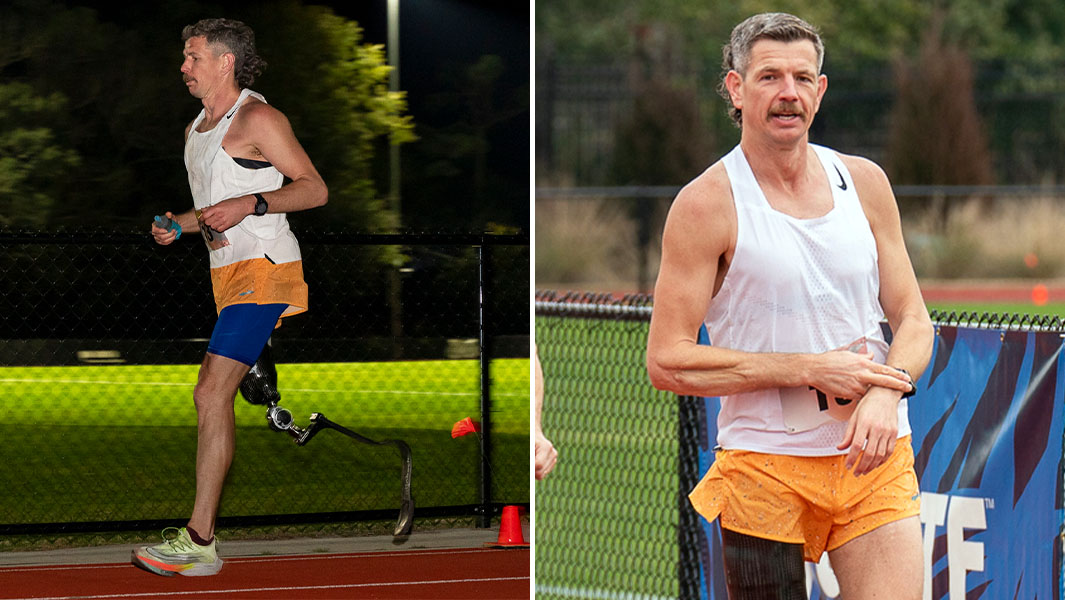
US Air Force veteran Adam Popp, who served in Iraq and Afghanistan as a bomb disposal technician, was injured in 2007 by an IED (improvised explosive device).
His right leg required an above-knee amputation, after which Adam admits he “effectively became a couch potato” for eight years.
But that all changed in 2015, when he received his first running prosthetic.
Within a year, he worked his way up from running a 5K to completing a marathon, then began training for ultramarathons.
And once he learned of Guinness World Records’ impairment classifications, he started “persistently pursuing” long-distance running records in the LA1 (unilateral above-knee amputation) category.
The 45-year-old mental performance coach now holds seven GWR titles, and he recently improved upon three of them during a single race, the gruelling Raven 24-Hour 100 Miler in South Carolina:
- Fastest 100 miles ultra distance (LA1) - 16 hr 13 min 43 sec
- Fastest 100 km ultra distance (LA1) - 9 hr 57 min 7 sec
- Greatest distance travelled on foot in 24 hours (LA1) - 164.41 km (102.16 mi)
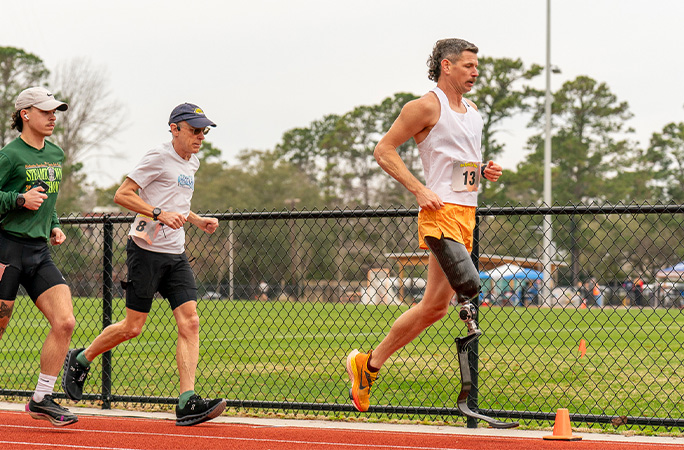
Among the 16 able-bodied starters, Adam was the only para athlete, placing third in the 100-mile distance and seventh in the 24-hour race.
He beat his previous 100-mile record by 2 hr 39 min and beat his 100-km record by 1 hr 1 min, in addition to bettering his 24-hour record by 3.5 km (2.1 mi).
Running over six miles per hour for 16 hours straight, Adam experienced “significant pain, fatigue, and moments of doubt”, which he says are common when pushing one’s limits.
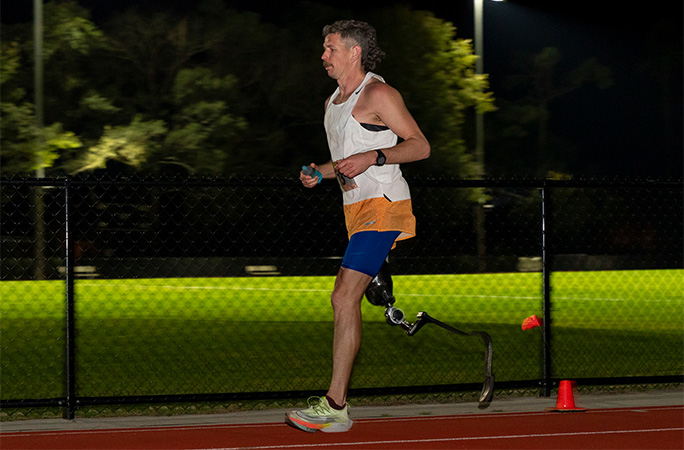
He persevered by relying on his mental resilience training as well as support from his team.
“The pain and fatigue came in waves,” Adam said. “While I was struggling at times, I also experienced moments of strength and energy.
“Throughout the race, I learned that emotions and physical states fluctuated—sometimes I felt great, even late into the race, and at other times, I felt less than optimal, even early on.
“This understanding helped me realize that discomfort was temporary and could change if I kept pushing forward.”
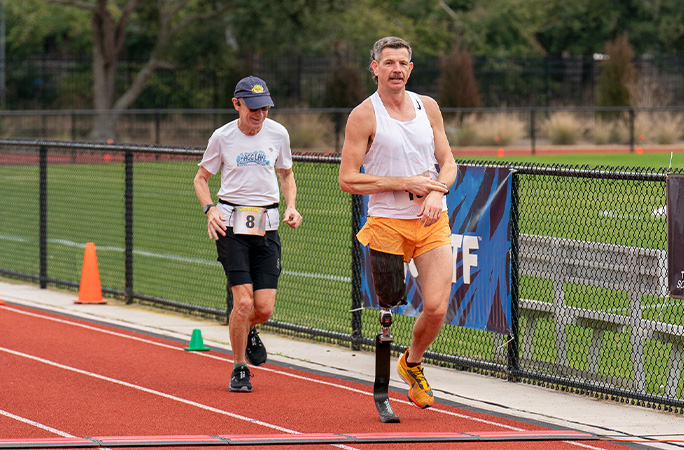
Adam followed a rigorous training schedule to prepare for this race, running over 100 miles per week as well as competing in a 100-mile race six weeks beforehand.
He revealed that the hardest aspect of running this ultramarathon was maintaining focus and energy over such a long duration.
A key part of that was carefully managing his nutrition and hydration levels to avoid cramps, which would have put his record attempts in jeopardy.
He also had to keep an eye on his skin breaking down or blistering, especially around his prosthetic.
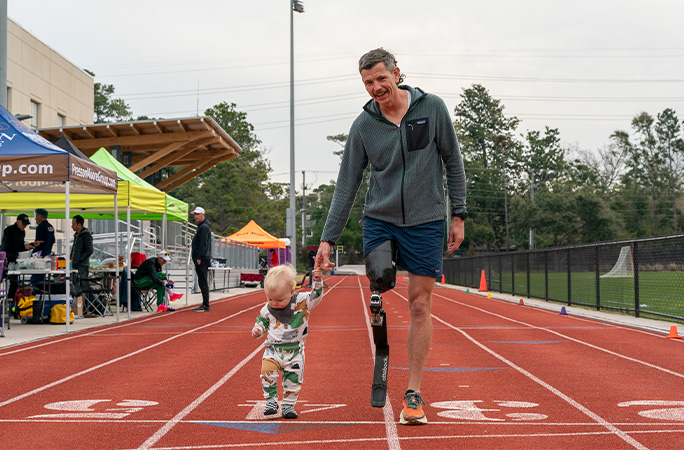
“Holding these records feels incredibly rewarding and humbling,” Adam said.
“It’s a testament to the power of resilience and the human spirit, as well as the ability to grow and thrive after a traumatic event.
“For far too long, I was only aware of a few amputees undertaking ultrarunning and completing challenging feats. With the introduction of these records and categories, we can now see the incredible achievements of others in our community.
“I hope my journey from a couch potato to a Guinness World Records title holder inspires others facing their own challenges to believe in their potential and strive for greatness.”


